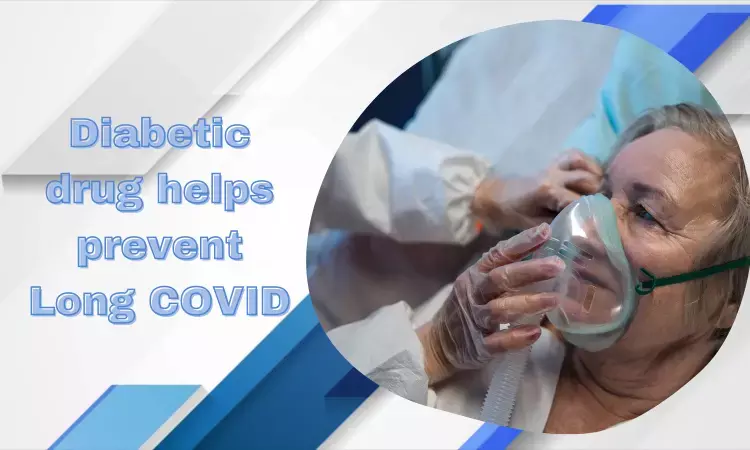- Home
- Medical news & Guidelines
- Anesthesiology
- Cardiology and CTVS
- Critical Care
- Dentistry
- Dermatology
- Diabetes and Endocrinology
- ENT
- Gastroenterology
- Medicine
- Nephrology
- Neurology
- Obstretics-Gynaecology
- Oncology
- Ophthalmology
- Orthopaedics
- Pediatrics-Neonatology
- Psychiatry
- Pulmonology
- Radiology
- Surgery
- Urology
- Laboratory Medicine
- Diet
- Nursing
- Paramedical
- Physiotherapy
- Health news
- Fact Check
- Bone Health Fact Check
- Brain Health Fact Check
- Cancer Related Fact Check
- Child Care Fact Check
- Dental and oral health fact check
- Diabetes and metabolic health fact check
- Diet and Nutrition Fact Check
- Eye and ENT Care Fact Check
- Fitness fact check
- Gut health fact check
- Heart health fact check
- Kidney health fact check
- Medical education fact check
- Men's health fact check
- Respiratory fact check
- Skin and hair care fact check
- Vaccine and Immunization fact check
- Women's health fact check
- AYUSH
- State News
- Andaman and Nicobar Islands
- Andhra Pradesh
- Arunachal Pradesh
- Assam
- Bihar
- Chandigarh
- Chattisgarh
- Dadra and Nagar Haveli
- Daman and Diu
- Delhi
- Goa
- Gujarat
- Haryana
- Himachal Pradesh
- Jammu & Kashmir
- Jharkhand
- Karnataka
- Kerala
- Ladakh
- Lakshadweep
- Madhya Pradesh
- Maharashtra
- Manipur
- Meghalaya
- Mizoram
- Nagaland
- Odisha
- Puducherry
- Punjab
- Rajasthan
- Sikkim
- Tamil Nadu
- Telangana
- Tripura
- Uttar Pradesh
- Uttrakhand
- West Bengal
- Medical Education
- Industry
Does Metformin have a role in Preventing Long COVID?

A new study has pointed to the potential effect of metformin on Long COVID Patients and preventing the development of chronic symptoms.
Metformin, a drug commonly used to treat diabetes may have a promising role in preventing the chronic consequences of COVID-19 also known as Long COVID, a new preprint study published by The Lancet has pointed out. The preprint hasn’t been peer-reviewed or published in a journal.
The post-acute consequences of COVID-19 known as Long COVID is an emerging chronic illness possibly affecting around 10% of those previously infected by the virus. The symptoms associated with Long COVID or Post Acute Sequelae of COVID (PASC) are multivarious and differ from patient to patient, they may range from a single symptom to a serious multi-organ failure. The symptoms can be mild and merciful or chronically life-threatening. The most common symptoms of Long COVID include- fatigue, breathlessness on exertion, persistent cough, muscular and joint pain, deficiencies in hearing and sight, and persistent loss of smell and taste. The study conducted by Bramante et al aimed to assess the outpatient treatment with metformin, ivermectin, or fluvoxamine on Long COVID symptoms.
Bramante and colleagues conducted a multi-site, Phase 3 randomized, quadruple-blinded placebo-controlled trial as outpatient treatment of SARS-CoV-2 that used a 2 x 3 factorial design of parallel treatments. Metformin (used typically in Type 2 Diabetes regimen), Ivermectin (an antiparasitic drug), and Fluvoxamine (an antidepressant drug) were used in this trial called COVID OUT. Participants, care providers, investigators, and outcome assessors were blinded.
Pregnant and lactating women were not excluded. Pregnant and lactating women were randomized 1:1 to metformin or placebo, not fluvoxamine or ivermectin due to less established literature for safety during pregnancy and lactation for those medications.
The study revealed the following finding:
- Of the 1323 randomized trial participants, 8.4% reported a medical provider diagnosed them with Long COVID; cumulative incidence: 6.3% with metformin and 10.6% with matched placebo.
- The metformin effect was consistent across subgroups, including viral variants.
- No statistical difference in Long COVID occurred in those randomized to either ivermectin or fluvoxamine.
- A 42% relative decrease and 4.3% absolute decrease in the Long COVID incidence occurred in participants who received early outpatient COVID-19 treatment with metformin compared to an exact-matching placebo.
References:
Bramante, Carolyn and Buse, John B. and Liebovitz, David and Nicklas, Jacinda and Puskarich, Michael and Cohen, Kenneth R. and Belani, Hrishikesh and Anderson, Blake and Huling, Jared D. and Tignanelli, Christopher and Thompson, Jennifer and Pullen, Matthew and Wirtz, Esteban Lemus and Siegel, Lianne and Proper, Jennifer and Odde, David J. and Klatt, Nichole and Sherwood, Nancy E. and Lindberg, Sarah and Karger, Amy B. and Beckman, Kenneth B. and Erickson, Spencer and Fenno, Sarah and Hartman, Katrina and Rose, Michael and Mehta, Tanvi and Patel, Barkha and Griffiths, Gwendolyn and Bhat, Neeta and Murray, Thomas A. and Boulware, David R., Outpatient Treatment of COVID-19 and the Development of Long COVID Over 10 Months: A Multi-Center, Quadruple-Blind, Parallel Group Randomized Phase 3 Trial. Available at SSRN: https://ssrn.com/abstract=4375620 or http://dx.doi.org/10.2139/ssrn.4375620
Dr. Mahalakshmi Sivashankaran joined Medical Dialogues as an Intern in 2023. She is a BDS graduate from Manipal College of Dental Sciences, Mangalore Batch 2022, and worked as a Junior Resident at VMMC & Safdarjung Hospital at the Department of Dental Surgery till January 2023. She has completed a Diploma in Executive Healthcare management from the Loyola Institute of Business Administration, developing skills in Healthcare Management and Administration. She covers several medical specialties including Dental, ENT, Diagnostics, Pharmacology, Neurology, and Cardiology.
Dr Kamal Kant Kohli-MBBS, DTCD- a chest specialist with more than 30 years of practice and a flair for writing clinical articles, Dr Kamal Kant Kohli joined Medical Dialogues as a Chief Editor of Medical News. Besides writing articles, as an editor, he proofreads and verifies all the medical content published on Medical Dialogues including those coming from journals, studies,medical conferences,guidelines etc. Email: drkohli@medicaldialogues.in. Contact no. 011-43720751


